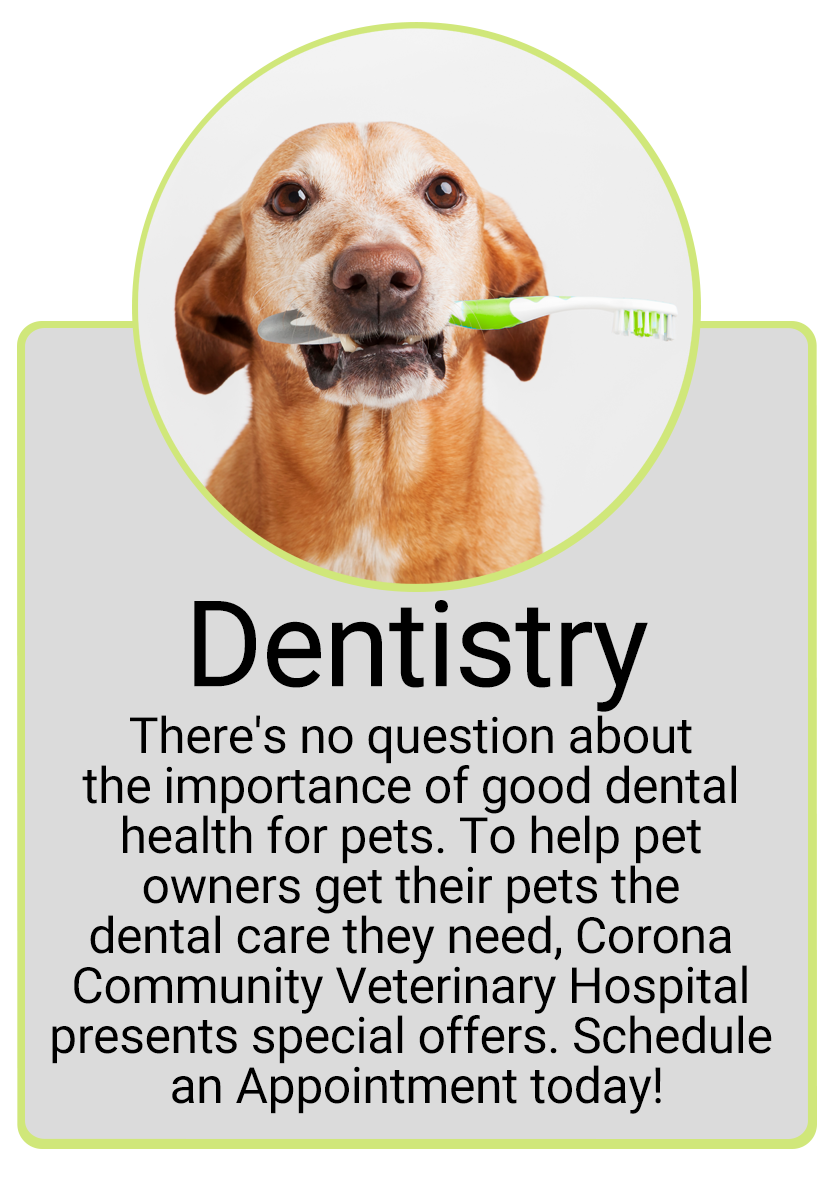Corona Community Veterinary Hospital
(951)279-7387
www.ccvh.biz
Frequently Asked Questions
Here are some questions/answers that we are frequently asked. If you have additional questions that aren't covered here, please feel free to give us a call at 951-279-7387 or email us at staff.ccvh@gmail.com
1. What are the Hospital hours? We are open 6 days a week. Dr. Ivan's hours are Monday through Saturday from 8:00am to 6:00pm for all of your pet's needs.
2. Do I need to have an appointment? We do not take walk-ins, Dr. Ivan is only available by appointment.
3. What forms of payment do you accept? Cash, Debit, Visa, Mastercard, Discover, American Express and CareCredit - apply at: www.carecredit.com
4. Can I make payments? No monthly payments, all payments are required at the time of service.
5. At what age can I have my pet spayed or neutered? Spaying or neutering can be done at approximately 5-6 months of age. Your pet is given a wellness exam to help determine whether they are healthy enough to undergo the surgical procedure. Current vaccinations are required at the time of surgery. Also a pre-anesthetic blood screen is recommended (but not required) prior to undergoing anesthesia and surgery. Call (951)279-7387 or click Schedule an Appointment to set up a blood draw appointment.
6. What is the pre-anesthetic blood screening? This is a blood test that is performed at least 1 day prior to surgery. It tests the organ functions, blood counts and clotting function of your pet. The pre-anesthetic blood screening is done to assure safety during surgery and the ability to heal following surgery. 7. How long do the sutures stay in after my pet's surgery? Procedures involving sutures require them to be removed in 14 days following the surgery.
8. Is it a good idea to let my pet have at least one litter? No, there is no advantage to letting your pet have one litter. However there are plenty of advantages to having you pet spayed or neutered. These advantages include decreasing the chances of breast tumors later in life, decreasing the chance of cystic ovaries and uterine infections later in life, decreasing the desire to roam the neighborhood, decreasing the incidence of prostate cancer later in life, helping prevent spraying and marking, and also decreases the surplus of unwanted puppies and kittens.
9. Do you board pets? No, unfortunately we stopped boarding shortly after Covid.
10. How often should my pet get an exam? We recommend coming in at least every year for a routine exam. Yearly exams include physical examinations by our veterinarian plus annual or booster vaccinations, parasite screening & prevention if needed. |





